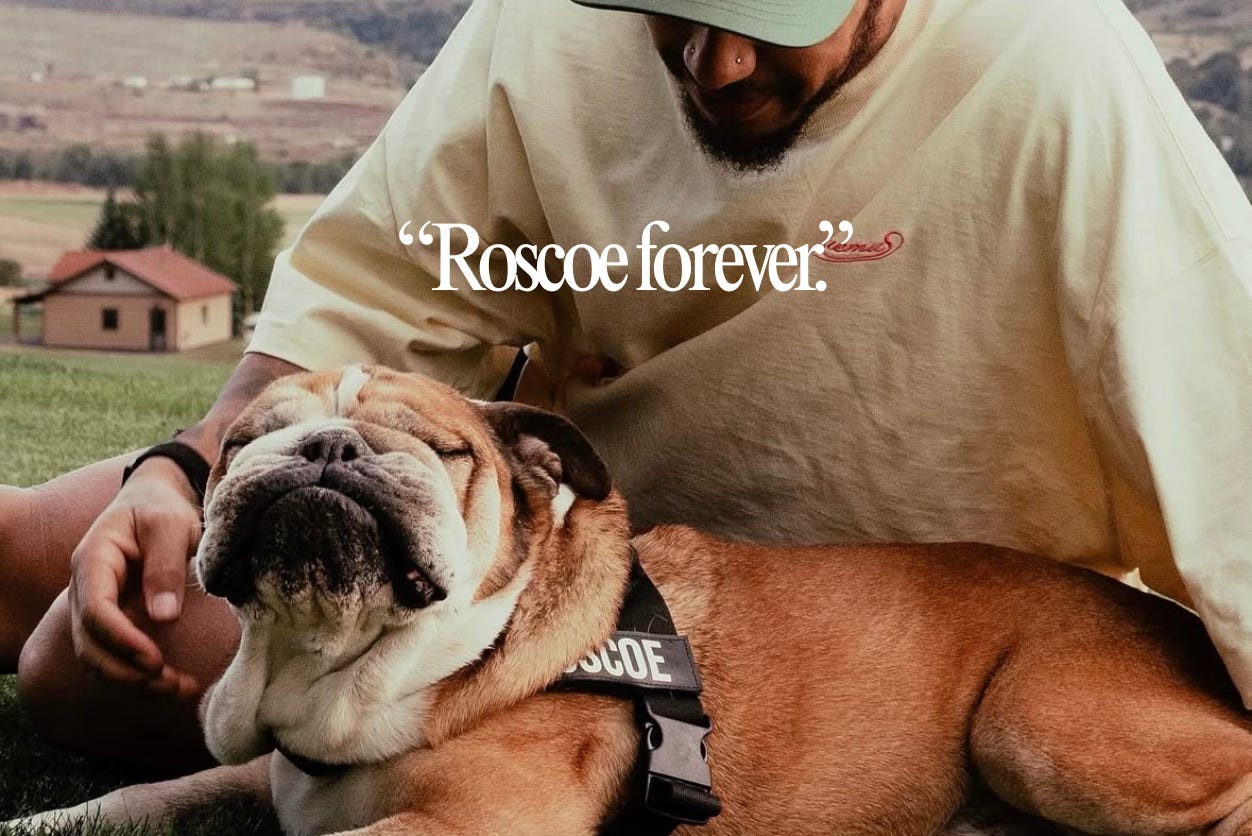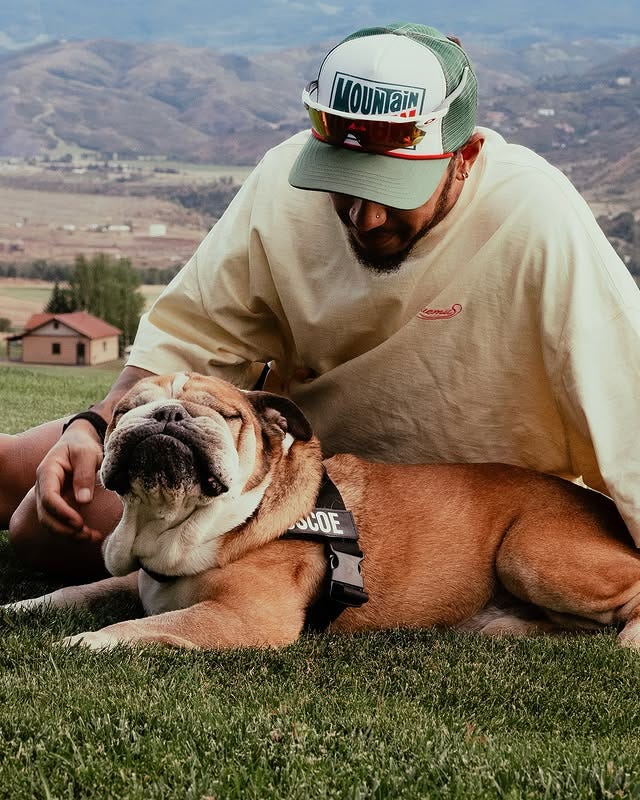"Roscoe forever."
Roscoe, Lewis Hamilton's beloved bulldog and an F1 social media star, died at 12 years old.

Roscoe, an English bulldog who rose to fame as Formula 1 driver Lewis Hamilton’s companion, died on Sunday after complications from pneumonia. He was 12 years old.
With his trademark bulldog jowls and wrinkles, Roscoe was a regular fixture on the F1 scene as he accompanied Hamilton to races and events around the world, racking up millions of followers on Instagram in the process and getting a cameo in Apple’s F1 movie starring Brad Pitt and Damon Idris. He was Hamilton’s second bulldog alongside Coco, who died in 2020.
Roscoe is part of a pantheon of celebrity pets who shared the spotlight with their parents and nabbed brand deals of their own. Last year, Roscoe became a spokesdog for Bramble, a vegan dog food company. (Hamilton has been vegan since 2017 and began feeding Roscoe a plant-based diet in 2020 in an effort to improve his health.) And just last month, Roscoe landed a cover on Dogue, Vogue’s dog-centric project.
Hamilton said he made the difficult decision to euthanize Roscoe after the bulldog was on life support for four days. Roscoe had been admitted to the hospital due to pneumonia but fell into a coma during the sedation process.
“I feel so grateful and honoured to have shared my life with such a beautiful soul, an angel and true friend,” Hamilton wrote in an Instagram post. “Bringing Roscoe into my life was the best decision I ever made, and I will forever cherish the memories we created together.”
Many local animal shelters and humane societies provide grief support groups led by professional counselors for those who are grieving the loss of a beloved pet. Pet Cloud also hosts a weekly support group available online.
In other news…
Wildlife veterinarians are beginning to test a bird flu vaccine on elephant seals. As H5N1 infects wildlife and farm animals on land, the virus has spread to marine mammals. An early trial is testing a vaccine with six seals being rehabilitated at the Marine Mammal Center in Sausalito. The goal is to prevent the disease from harming more endangered marine mammals, including Hawaiian monk seals.
A new study found multiple bacterial groups (genera) and antimicrobial resistant genes in commercially produced raw and freeze-dried raw cat food. Raw diets have increasingly become popular among pet owners seeking alternatives from highly processed kibble, but studies like this show that the risk factor remains high—especially in combination with the threat of bird flu, which has been fatal for some cats.
A literature review in the Journal of Food says there is an “immediate need for stringent surveillance and improved biosecurity in raw food supply chains” to minimize bird flu transmissions and keep humans and pets safe. Still, regulation of the pet food industry remains convoluted, as I wrote about earlier this year, and manufacturers have relatively few federal and state resources available for widespread testing of their products. Research (and funding for such research!) also remains lacking on whether the potential health benefits of a raw diet outweigh the risks.
I loved this story about a crow and a dog becoming best friends.
I’ll leave you with this musical performance by my dog Gemma and my mom’s dog Carrie.






